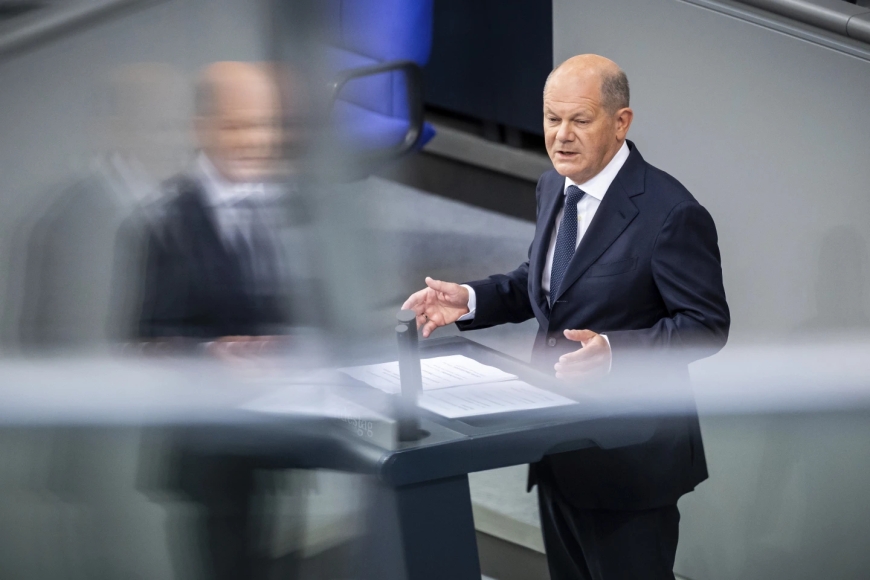Germany’s Scholz Lauds Proposed New EU Leadership, Urges Swift Decision

German Chancellor Olaf Scholz praised the European Union’s proposed new leadership for the coming years, calling it the foundation for “a good European future,” and urged fellow national leaders to finalize the package at this week’s summit.
The proposal from three mainstream political groups nominates German conservative Ursula von der Leyen for a second term as president of the EU’s executive Commission. Former Portuguese Prime Minister Antonio Costa, a socialist, is proposed to lead the European Council, replacing Charles Michel. Estonian Prime Minister Kaja Kallas, a strong advocate for Ukraine and a pro-business liberal, is set to become the EU’s top diplomat, succeeding Josep Borrell. These appointments need the approval of EU leaders, and von der Leyen must also pass a secret ballot in the European Parliament to secure her reelection.
“From my point of view, these make a good lineup and are clear decisions for a good European future,” Scholz told lawmakers in Berlin ahead of the EU summit on Thursday and Friday.
Scholz expressed hope that the summit would agree on the top posts, emphasizing the need for swift action in the European institutions. “We cannot afford an impasse in these difficult times; our citizens don’t expect an argument about jobs, but quick work in the European institutions,” he said.
The recent European Parliament elections saw gains for far-right parties, particularly in France and Germany, while governing parties in those countries performed poorly. In Germany, the mainstream conservative opposition bloc, which von der Leyen belongs to, was the strongest political force. EU leaders failed to reach a final agreement on the candidates at an informal summit on June 17.
“Three out of four Germans, three out of four Europeans, don’t vote for populist and extremist parties but for pro-European forces, and we are obligated to them — and that must not go under in the discussion now,” Scholz said.
Scholz emphasized the importance of the commission’s independence from extremist and populist forces in the European Parliament. “That would have been a bad gamble; we need more unity and not less — so it’s good that there is a clear majority for constructive and pro-European parties in the European Parliament, and I expect the future Commission to draw precisely on such a majority in the parliament,” he added.
The upcoming summit will test the EU’s ability to come together and confirm leadership that can navigate the challenges ahead, ensuring stability and continuity in European governance.













































